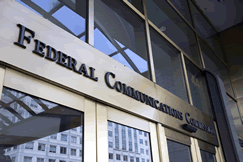Net Neutrality: The Power to Act - Podcast
Telecommunications & Electronic Media Practice Group Podcast
 After suffering two judicial setbacks already, most recently in the D.C. Circuit’s Verizon v. FCC decision this past January, the Federal Communications Commission is once again proposing to adopt new net neutrality regulations. The proposed regulations would bar internet service providers from blocking access to any lawful website or from engaging in commercially unreasonable practices. A key aspect of the FCC’s proposal drawing considerable attention concerns whether the FCC should bar so-called paid prioritization of internet traffic.
After suffering two judicial setbacks already, most recently in the D.C. Circuit’s Verizon v. FCC decision this past January, the Federal Communications Commission is once again proposing to adopt new net neutrality regulations. The proposed regulations would bar internet service providers from blocking access to any lawful website or from engaging in commercially unreasonable practices. A key aspect of the FCC’s proposal drawing considerable attention concerns whether the FCC should bar so-called paid prioritization of internet traffic.
In this Teleforum, three experts with divergent views addressed whether there is any need for the FCC to adopt any new neutrality regulations and, if so, whether the agency possesses the legal authority to do so. Two principal legal theories that may support FCC action were discussed – using the FCC’s existing authority under Section 706 of the Communications Act or classifying internet service providers as common carriers under Title II of the Act. The panelists also discussed the most important question of all: whether and how net neutrality regulation might affect consumer welfare.
- Maureen K. Ohlhausen, Commissioner, Federal Trade Commission
- Prof. Daniel Lyons, Boston College Law School
- Michael Weinberg, Vice President, Public Knowledge
- Moderator: Randolph J. May, President, The Free State Foundation
[Return to the Practice Groups Podcasts menu]






